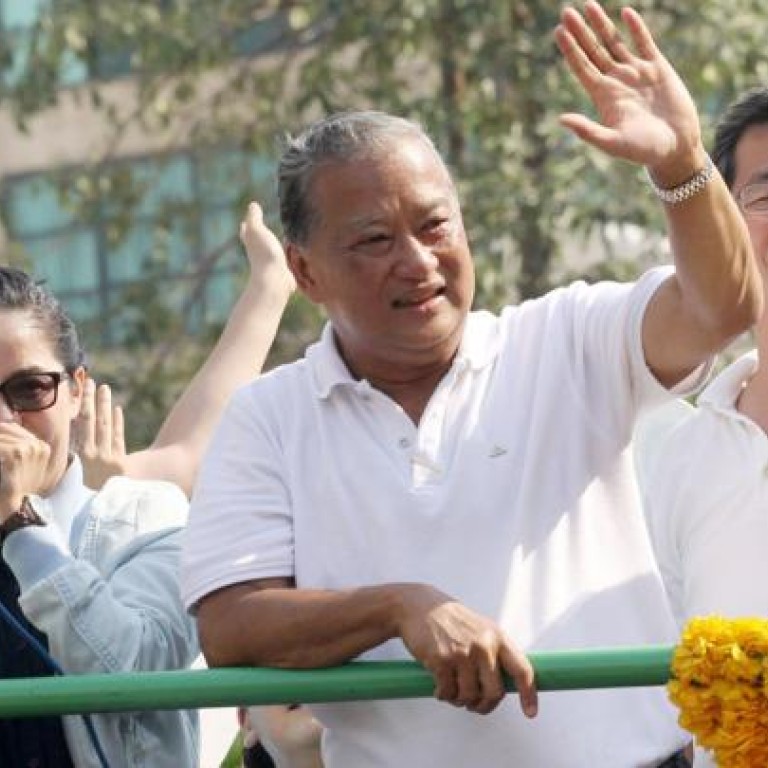
Election of Bangkok governor turns into mini-referendum
Almost three years after the Thai capital was engulfed by weeks of deadly violence between the "red-shirt" supporters of exiled former prime minister Thaksin Shinawatra and the opposition "yellow shirts", today's election to decide who will be Bangkok's next governor has become a mini-national referendum.
Almost three years after the Thai capital was engulfed by weeks of deadly violence between the "red-shirt" supporters of exiled former prime minister Thaksin Shinawatra and the opposition "yellow shirts", today's election to decide who will be Bangkok's next governor has become a mini-national referendum.
A total of 25 candidates are standing, but the poll is being seen as a straight fight between Thailand's ruling Pheu Thai Party and the opposition Democrat Party.
A win for Pheu Thai would confirm the party's dominance of national politics, following its comprehensive victory in the 2011 general election. For the increasingly desperate Democrats, Bangkok remains their last major stronghold. Losing it is likely to precipitate a shake-up of the party's leaders.
"The election is an expression of the national conflict between the Democrats and Pheu Thai," said Pitch Pongsawat, a professor of political science at Bangkok's Chulalongkorn University. "Both parties will fight to the death. It's a real test of the different ideologies and the party machines."
Looming over the poll is Thaksin, still the most important figure in Thai politics and who many believe continues to run the country through his sister, current prime minister Yingluck Shinawatra.
Opinion polls show that Bangkok's residents are most concerned with worsening traffic and pollution and all-pervasive corruption.
Yet, those polls reveal that almost 60 per cent of voters do not view the contest between Pheu Thai's candidate, former Police General Pongsapat Pongcharoen, and the Democrats' incumbent governor Sukhumbhand Paribatra as an issue-based election about the capital's future.
Instead, the Bangkok poll has become a test of the popularity of both Pheu Thai and the Democrats after almost two years of a Pheu Thai government.
Pongsapat is regarded as the front runner, in part because of the lukewarm reaction to Sukhumbhand's tenure as governor over the last four years.
Pheu Thai, too, can count on the support of the red-shirt United Front for Democracy against Dictatorship (UDD). They plan to mobilise 10,000 volunteers to monitor today's vote. "We want a clean and transparent election," said UDD chairwoman Thida Thavornseth.
But few observers expect a fair poll. With reports of "ghost" voters being registered and rumours of people being paid to vote, some Bangkok residents are already turning against the formidable Pheu Thai machine.
"If Pheu Thai win in Bangkok, then what sort of democracy is that? I like the idea of balance; it's not right that one party controls everything in the country," said 49-year-old teacher Yawwalak Kaalakeet.
With a majority of city councillors being Democrats, Sukhumbhand will be hoping they deliver him votes. But the election turnout is expected to be low, and much will depend on how many people support the many independent candidates.
"In 2009, every poll said Pheu Thai would win, but they lost because so many people voted for independent candidates," said Professor Pitch Pongsawat. "If those people vote Pheu Thai this time, it will be a very close race."
